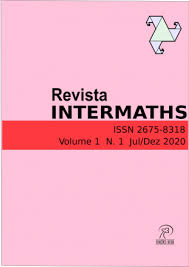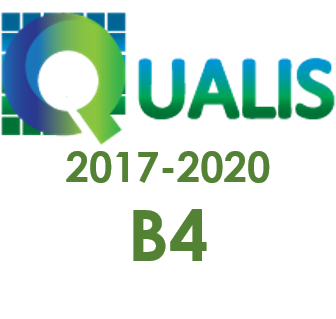Political, technical and pedagogical effects of the COVID-19 Pandemic in Mathematics Education: an overview of Brazil, Chile and Spain
DOI:
https://doi.org/10.22481/intermaths.v1i1.7400Palavras-chave:
coronavirus, Educação à Distância, Didática da Matemática, Filosofia da Educação Matemática, CoronavírusResumo
Este artigo discute os problemas e questões que surgem na Educação, em particular na Educação Matemática, a partir da problematização dos efeitos da pandemia COVID-19. Para isso, três pesquisadores em Educação Matemática do Brasil, Chile e Espanha se encontraram virtualmente. Com base nas discussões, o grupo forneceu o contexto para cada um dos três países em termos de como eles vêm gerenciando as ações relacionadas ao contexto da pandemia e selecionou três histórias que vivenciaram nesse contexto, que utilizaram como elementos materiais para uma discussão conjunta de forma não localizada. Por esse caminho, tem-se como resultado um panorama dos efeitos do COVID-19 na educação em diferentes países, os quais foram classificados em três dimensões: técnica, política e pedagógica. Além disso, são apresentadas questões à Educação Matemática produzidas a partir da problematização dos efeitos da pandemia.
Downloads
Referências
K. L., O’Halloran, Mathematical Discourse: Language, Symbolism and Visual Images, Continuum, London and New York, 2005.
D. Farsani, (2015), Making Multi-Modal Mathematical Meaning in Multilingual Classrooms, Unpublished PhD thesis, University of Birmingham, 2015.
S. Gerofsky (2010), Mathematical learning and gesture: Character viewpoint and observer viewpoint in students’ gestured graphs of functions, Gesture 10 (2010) 321-343, https://doi.org/10.1075/gest.10.2-3.10ger
L. Radford, F. Arzarello, L. Edwards & C. Sabena, The multimodal material mind: Embodiment in mathematics education, in J. Cai (Ed.), Compendium for Research in Mathematics Education, Reston, NCTM, 2017, pp. 700-721.
L. Radford, L. Edwards & , F. Arzarello, Introduction: beyond words, Educational Studies in Mathematics, 70 (2009) 91–95, https://doi.org/10.1007/s10649-008-9172-y
R. Núñez, Gesture, Abstraction, and the Embodied Nature of Mathematics, in W-M. Roth (ed.), Mathematical Representation at the Interface of Body and Culture, Information Age Publishing, Charlotte NC, 2009, pp. 309-328.
L. W. Barsalou, Grounded cognition, Annual Review of Psychology, 59 (2008) 617–645, https://doi.org/10.1146/annurev.psych.59.103006.093639
R. Nemirovsky, Three conjectures concerning the relationship between body activity and understanding mathematics, in N. A. Pateman, B. J. Dougherty, & J. T. Zilliox (Eds.), Proceedings of the 27th conference of the International Group for the Psychology of Mathematics Education, Vol. 4, PME, Hawaii, 2003, pp. 113-120.
L. D. Edwards, Gestures and conceptual integration in mathematical talk, Educational Studies in Mathematics, 70 (2009) 127-141, https://doi.org/10.1007/s10649-008-9124-6
C. Yoon, M. O. Thomas, & T. Dreyfus, Grounded Blends and Mathematical Gesture Spaces: Developing Mathematical Understandings via Gestures, Educational Studies in Mathematics, 78 (2011) 371-393, https://doi.org/10.1007/s10649-011-9329-y
J. Hattie, Visible learning: A synthesis of over 800 meta-analyses relating to achievement, Routledge, 2008, https://doi.org/10.1080/00071005.2011.584660
D. Farsani & R. Araya, Professional Proxemics, Part I, ECTEL Workshop Proceedings, 2017.
F. Lim, K. O’Halloran &, A. Podlasov, Spatial pedagogy: mapping meanings in the use of classroom space, Cambridge Journal of Education, 42 (2012) 235–251, https://doi.org/10.1080/0305764X.2012.676629
V. Font, A. Breda & G. Sala, Competências profissionais na formação inicial de professores de matemática, Praxis Educacional, 11 (2015) 17-34.
J. L. Lupiáñez, Competencias del profesor de educación primaria, Educação & Realidade, 39 (2014) 1089-1111, https://doi.org/10.1590/S2175-62362014000400008
Downloads
Publicado
Como Citar
Edição
Seção
Licença
Copyright (c) 2020 INTERMATHS: Revista de Matemática Aplicada e Interdisciplinar

Este trabalho está licenciado sob uma licença Creative Commons Attribution 4.0 International License.
 All content of Revista INTERMATHS/Journal INTERMATHS is licensed under a Creative Commons - Atribuição 4.0 Internacional (CC-BY 4.0).
All content of Revista INTERMATHS/Journal INTERMATHS is licensed under a Creative Commons - Atribuição 4.0 Internacional (CC-BY 4.0).












